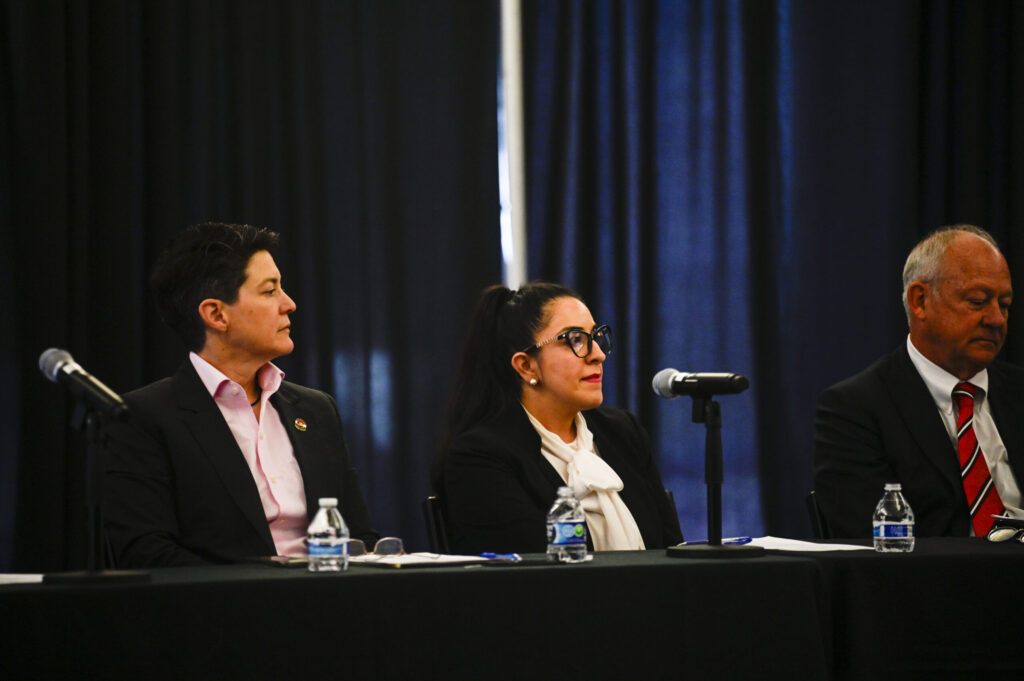Appeals court orders new Weld County murder trial after judge refused to give self-defense instruction
Colorado’s second-highest court on Thursday decided a Weld County judge should have instructed jurors to consider whether a man accused of murder acted in self-defense, given that some evidence at the crime scene supported that theory.
Jurors convicted Kenneth James Hoschouer III in 2021 of murdering his friend, Christopher Grau, at Grau’s residence in Firestone two years earlier. The prosecution’s evidence showed Hoschouer was intoxicated, angry and had the murder weapon concealed in his home after the killing. Hoschouer received 48 years in prison.
On appeal, Hoschouer claimed there were numerous errors with his trial, including his inability to have jurors consider the possibility of self-defense.
Under Colorado law, self-defense is an affirmative defense. The prosecution, in addition to proving the crime beyond a reasonable doubt, also needs to disprove at least one component of self-defense to convict a defendant. Judges must instruct a jury to consider whether a defendant acted in self-defense whenever “some credible evidence” supports that idea.
Hoschouer argued there was some evidence of self-defense: the fact that a pocketknife, 13 shell casings and a blood-stained wooden board were found around Grau’s body, suggesting a struggle took place.
District Court Judge Timothy Kerns acknowledged as much when he said the objects were “circumstantial evidence of the need for self-defense.” Nonetheless, he declined to give jurors the self-defense instruction.
The Colorado Attorney General’s Office argued on appeal that the instruction was not warranted. Jurors only heard that Hoschouer had allegedly left Grau’s home before the shooting took place and nothing about his need to use self-defense.
“Indeed, Hoschouer did not have any physical injuries shortly after the murder was discovered, and he never told his wife or the police that he feared for his life,” wrote Assistant Attorney General Alejandro Gonzalez.
But a three-judge Court of Appeals panel observed Kerns’ refusal to give a self-defense instruction meant Hoschouer’s attorney could not rely on that theory when arguing to the jury.
“Instead, had the jury been instructed as requested by Hoschouer, counsel’s theory of the case in closing argument likely would have been entirely different,” wrote Judge Craig R. Welling in the Jan. 16 opinion.
Welling elaborated that the various objects around Grau’s body amounted to some evidence of a confrontation between the two men. It was possible Hoschouer felt the need to shoot Grau because he believed he was in imminent danger of being killed himself.
Moreover, the panel was concerned the lack of a self-defense instruction could have affected the outcome of the trial because the evidence against Hoschouer was not airtight — and some of it was puzzling. Welling noted there was no apparent explanation for the weapons scattered at the crime scene. Nor was there an answer for why Hoschouer’s neighbor knew the location of the murder weapon in Hoschouer’s home and tipped off police about it.
“We acknowledge that there is limited evidence to support this theory, but it’s ultimately the jury’s job to determine whether the evidence demonstrates that Hoschouer did indeed act in self-defense,” Welling wrote. “But the jury didn’t have the opportunity to make that determination in this case. And, because there is ‘some evidence’ of each element of self-defense, the trial court erred by removing that opportunity from the jury.”
The case is People v. Hoschouer.











